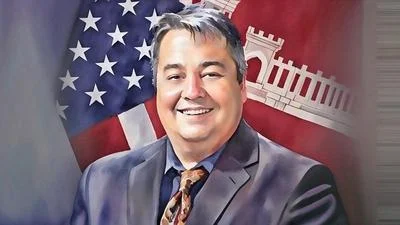WASHINGTON, DC - The House Energy and Commerce Subcommittee on Oversight and Investigations, chaired by Rep. Tim Murphy (R-PA), today held a hearing to review the public health response to seasonal influenza, a virus that carries a heavy cost, including tens of thousands of lives lost each year. With the nation facing a particularly harsh flu season, and with a vaccine that is a poor match for the dominant strain, members are continually working to determine how the public health sector can prepare for and respond to the flu more effectively. Members also discussed the recent outbreak of measles and linkages to an increase in the number of unvaccinated children, and discussed how vaccines are used in response to various public health threats, from the flu to measles and other types of viruses.
“America is experiencing a severe flu season with an unstable predominant strain that could result in one of the deadliest and costliest flu seasons in recent memory," Murphy explained. “So we’re meeting here today to challenge some of the policies and decisions, but in the spirit of us all working together to make improvements in the public health response to seasonal flu."
“I, like many folks back in Michigan and across the country, believe we can do better in addressing this major public health threat," said full committee Chairman Fred Upton (R-MI).
Rep. Morgan Griffith (R-VA) noted that the CDC saw evidence of a mismatch in the vaccine of 36 percent as early as June, above the 20 to 30 percent range that CDC has stated would be a significant mismatch. Griffith questioned witnesses about what contingency planning should have been possible given the notice of a mismatch as early as June.
Click to watch Rep. Griffith’s questioning
Witnesses explained some of the advances in science and medicine that could be used to strengthen the federal response efforts to the flu each year.
Dr. Robin Robinson, Director of Biomedical Advanced Research and Development Authority at the Department of Health and Human Services said, “This year’s limited seasonal influenza vaccine effectiveness and the arrival of the first human case of H7N9 virus in North America highlight our urgent need together with industry and academic partners to make better seasonal and pandemic influenza vaccines, antivirals, and diagnostics."
Dr. Anne Schuchat, Director of the National Center for Immunization and Respiratory Diseases at CDC added, “Influenza viruses present us with unique challenges. Unlike other vaccine preventable diseases, influenza is constantly changing. We will work, along with our government, academic, and industry partners, to improve use of antiviral treatment, to make more effective influenza vaccines, and to speed production of existing vaccines for all Americans."
Dr. Anthony Fauci, Director of the National Institute of Allergy and Infections Diseases (NIAID) at the National Institutes of Health said, “NIAID plays a critical role in the comprehensive efforts of the federal government to combat influenza by supporting basic and translational research to inform the development of new and improved influenza diagnostics, therapeutics, and vaccines. A major focus of these efforts is the development of a universal influenza vaccine that could provide long-lasting protection against multiple strains of influenza, including seasonal and pandemic influenza."
Dr. Karen Midthun of the Center for Biologics Evaluation and Research at HHS added, “Although these vaccine development efforts are still in early stages, some may have potential to increase and broaden protection against influenza. Our goal is to better protect the American public, including those at higher risk of complications from influenza."





